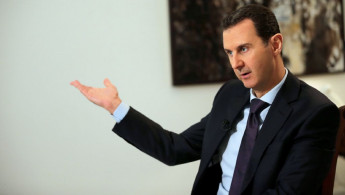Assad regime approves new media restrictions, despite disappearing 120,000 Syrians
Syrian President Bashar al-Assad on Monday signed into law a bill enshrining a six-month jail sentence for citizens residing in the country who spread disinformation undermining the state's reputation.
Under the previous law, only Syrians residing abroad could be hit with jail sentences, likely in absentia, for spreading fake or exaggerated news deemed damaging to the state.
But under the new legislation approved on Monday, Syrians at home will officially face prison time.
The Syrian regime is believed to have disappeared 120,000 Syrians - mostly pro-democracy protesters or others perceived as activists - following the outbreak of the 2011 revolution, many of them feared dead.
It has stamped out all forms of opposition in the country, waging a bloody war on opposition towns and cities killing hundreds of thousands of civilians.
Syrians are routinely detained, tortured and murdered by Syrian security services.
"Every Syrian who knowingly publishes false or exaggerated news that undermines the prestige... of the state shall be punished by imprisonment for at least six months," the presidency said in a statement.
The same sentence was laid out for any Syrian who "publicises news that could improve the reputation of an enemy state", the presidency added.
The statement did not specify which countries fall under that label. Security forces are known to ignore official stipulations and laws.
Assad in the UAE: Examining the implications
— The New Arab (@The_NewArab) March 24, 2022
✍ @GiorgioCafiero & @langloisajl https://t.co/UkGOLqnlIy
The new law also introduced a prison sentence of at least one year for "every Syrian who, in writing or in speech, called for the cession of Syrian territory", according to the statement.
Syrians have feared prosecution for criticising the state for decades, even though the constitution did not lay out specific legislation banning such comments.
"People across the country... lived in fear of being arrested for expressing their opinion, belonging to a dissenting political party, reporting for the media, or defending human rights," the United Nations Human Rights Council said this month.
The latest move follows months of growing discontent over a spiralling economic crisis.
Civil war erupted in Syria in 2011 after the violent repression of protests demanding regime change.
Around half a million people have been killed and millions have been displaced in the conflict, which has battered the country's economy.
The rising cost of living has been further stoked by food and fuel price inflation resulting from Russia's invasion of Ukraine.





 Follow the Middle East's top stories in English at The New Arab on Google News
Follow the Middle East's top stories in English at The New Arab on Google News


